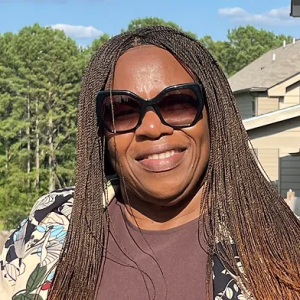Disaster Preparedness: A Call to Action!
September is National Preparedness Month.
This is a call to action! A call to Adventist Faith Community Nurses (FCNs) to be prepared to respond when disaster of any kind or any magnitude strikes.
What is preparedness? It is a set of actions that are taken as precautionary measures in the face of potential or actual disasters. Being prepared helps to save lives.
Our goal is to take a wholistic approach and be adequately positioned to address the physical, emotional, and spiritual needs of those affected by disasters.We must be prepared to lend a helping hand and a caring heart.The tragedies of yester year are behind us. Today and the future lie ahead.
In the wake of so many reoccurring natural and man-make disasters, the question might be asked, what, how and why should we prepare? We should be prepared for any form of (natural or man-made disasters) such as hurricanes, floods, fires, mudslides, just to name a few. In such circumstances.FCNs have the unique opportunity to be involved and make a difference. These opportunities also present many pathways for us to demonstrate God’s amazing love.
Here is a recent example of a natural disaster:
Nearly 7 inches of rain fell in St. Johnsbury, Vermont, in just 6 hours, an amount considered a 1-in-1,000 year event – one so extreme, it usually only happens once every thousand years in normal conditions. More than 8 inches have fallen so far there in what is one of the highest calendar day totals in state history, the National Weather Service in Vermont said. This is the third devastating flood event to hit Vermont in just over a year. More than 100 people were rescued and at least one person died in early July after the remnants of Hurricane Beryl doused the state.(1)
FCNs are uniquely equipped to lead the way in response to such circumstances, to provide effective disaster management.
We have demonstrated that we have caring, loving hearts for all people. Thus, being ready to implement important steps to save lives and provide physical, emotional and spiritual assistance in critical situations is of utmost importance.
When disaster of any kind strikes, FCNs must be ready with a quick response. Prioritization of saving lives is a must and appropriate steps are critical to this process. FCNs, are you ready? If not, here are some critical steps that one must familiarize and be ready to implement first:
The 3 P’s of disaster planning:
- Plan. Create a practical plan of action of best practices
- Prepare. Identify personnel
- Practice. Procedural protocols
Implement: Three C’s of Emergency: Check, Call, Care
- Check. Check for anything unsafe in the surrounding area.
- Call. In emergency situations, call 911 immediately.
- Care. After checking the scene and calling for help, provide care until medical professionals arrive on the scene.
Use DRABC:
- Danger
- Response
- Airway
- Breathing
- Circulation.
FCNs should be prepared to provide:
- Health Assessments. Conduct initial and ongoing health assessments to identify immediate needs.
- Emotional Support. Help individuals cope with trauma and loss.
- Spiritual Care. Provide spiritual support to give hope and resilience to those affected.
The wholistic approach that combines physical, emotional and spiritual care is of vital importance in fostering recovery and resilience to communities and individuals experiencing disasters.
Let us as FCNs continue to demonstrate the love of Jesus in deeds and in action encompassing all that we do to bring glory to His name.
References
-
‘Catastrophic flooding’ forces water rescues in Vermont after 1-in-1,000-year rainfall event. CNN, Jul 30, 2024. Accessed at https://www.wcov.com/weather/catastrophic-flooding-forces-water-rescues-in-vermont-after-1-in-1-000-year-rainfall-event/article_3a0d8d63-392f-5fab-a639-a08c7c2ff9bc.html


